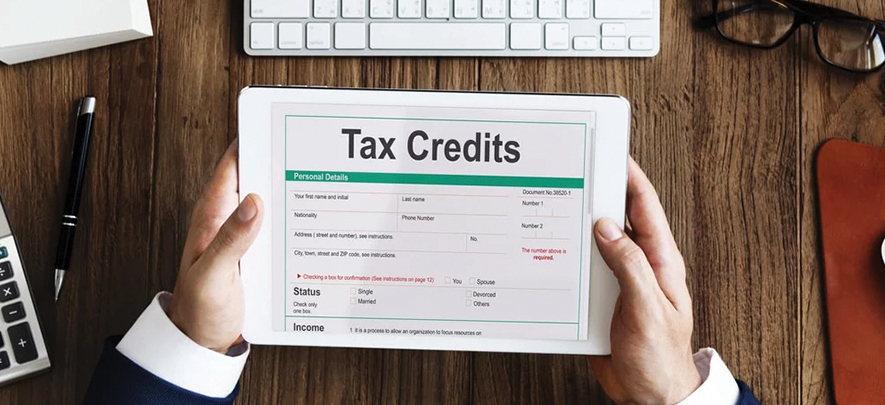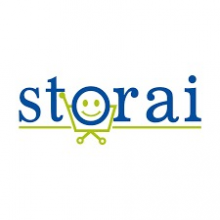Input tax credit simplified

GST
387 week ago — 8 min read
Input Tax Credit (ITC) is the backbone of a Value Added Taxation (VAT) system. Since it is based on the principles of VAT, the Goods and Services Tax (GST) too has to provide for an appropriate mechanism by which the basic concept of VAT remains intact. Since GST is a destination based tax, the burden of tax has to be borne by the ultimate consumer of goods or services. Neither should there be any cascading of taxes nor any burden of such tax on businesses.
The concept of ITC is not new to those who have been dealing with Excise Duty, Service Tax and State VAT laws. It existed either partially or fully in the form of Cenvat (earlier called Modvat) and set off. As these taxes were being levied at different stages and by different Governments, there was no inter connectivity between them. Therefore, taxes paid under one or more enactments cannot be adjusted against each other. GST aims to overcome this difficulty.
The Indian GST law i.e. The Central Goods and Services (CGST) Act, Integrated GST (IGST) Act, Union Territory GST (UTGST) Act as well as State GST (SGST) Act contain elaborate provisions regarding input tax credit and claim thereof by eligible taxable persons. The provisions and the conditions in all the above enactments are on the same lines.
Important definitions
As per the Section 2 of the CGST Act, input means any goods other than capital goods used or intended to be used by a supplier in the course of furtherance of business.
Input tax is taxes paid on any supply of goods, services, or both and includes CGST, SGST, UTGST and IGST. It also includes the IGST charged on import of goods but does not include the tax paid under the composition levy.
Input tax credit means the allowance for a business to adjust the taxes it has paid on inputs against taxes it needs to deposit on the output.
Conditions & restrictions
1. Section 16(1) of the CGST Act provides that every registered person is entitled to take credit of input tax charged on any supply of goods or services or both to him which are used or intended to be used in the course or furtherance of his business. Such inward supplies may be of inputs, input services or capital goods. All such supplies are eligible for claim of ITC. Thus, whether it is raw material, packing material, trading goods, consumables, capital goods or items of expenditure (debited to profit & loss a/c under various heads) all such items are eligible provided the same are used or intended to be used in the course or furtherance of business (subject to such conditions and restrictions as may be prescribed).
2. Goods and/or services (as the case may be) must have been received.
3. Registered person should have in possession a ‘Tax Invoice’ (issued by the supplier) in respect of such supply.
4. Tax charged on such inward supply must have been paid to the Government (whether in cash or by way of utilization of ITC).
5. A return (as per section 39) has been furnished.
6. In respect of capital goods, if the registered person has claimed depreciation (under the Income Tax Act) on tax component of such assets (capital goods), ITC shall not be admissible. That would mean that if tax component has been added to the cost of such capital goods, ITC to that extent is not eligible
7. If the recipient fails to make payment to the supplier in respect of supplies so received (on which ITC has been claimed) within a period of 180 days from the date of issuance of Tax Invoice, the ITC so claimed has to be reversed. And such amount can be reclaimed after making due payment to the supplier.
8. If the taxable supplies received are used partly for the purposes of business and partly for any other purposes (such as personal use). ITC will be admissible to the extent of business use only. If the exact amount is not ascertainable, then proportionate reduction method will be applicable.
9. If the taxable supplies received are used partly for the purpose of outward supply of taxable goods and/or services (including zero rated supplies) and partly for exempt supplies, ITC will be admissible to the extent of use in taxable supplies including zero rated supplies). If the exact amount is not ascertainable, then proportionate reduction method will be applicable. Do note that zero rated supply includes supply for export of goods or services or both and supply of goods or services or both to a Special Economic Zone developer or a Special Economic Zone unit.
Non availability
Input tax credit shall not be available in respect of the followings:
- Motor vehicles and other conveyance except when they are used for further supply of such vehicles or conveyances; or transportation of passengers/ Goods; or imparting training on driving, flying, navigating such vehicles or conveyances.
- Food and beverages, outdoor catering, beauty and health treatment, cosmetic and plastic surgery.
- Membership of a club, health and fitness centre.
- Rent-a-cab, life insurance and health insurance unless mandated by Government under any law for the time being in force
- Travel benefits extended to employees on vacation such as leave or home travel concession account, including when such goods or services or both are used in the course or furtherance of business.
- Goods or services or both on which tax has been paid under composition schemes
- Goods or services or both received by a non-resident taxable person except on goods imported by him.
- Goods or services or both used for personal consumption.
- Goods lost, stolen, destroyed, written off or disposed of by way of gift or free samples.
Documents required for ITC
The input tax credit shall be availed by a registered person, including the Input Service Distributor, on the basis of any of the following documents:
(a) Tax Invoice issued by the supplier of goods or services or both
(b) An invoice issued in respect of purchases from unregistered dealers, where tax is payable under reverse charge scheme
(c) A debit note issued by a supplier in respect of goods return, rate difference
(d) A bill of entry of imports for assessment of IGST
(e) An ISD invoice or ISD credit note or any document, issued by an Input Service Distributor
Time limit for claim
ITC can be claimed immediately in respective month (Tax Period) to which the Tax Invoice relates (subject to actual receipt of such goods/services). Each such claim of ITC is credited to the Electronic Credit Register of such registered person. He may utilise the credit as and when he would like to adjust the same against his output tax liability.
However, if a person has not claimed ITC in the respective month, for any reason, he may claim the same any time (i.e. in any tax period) within six months from the end of financial year or before the time limit for submitting Annual Return for the said financial year, whichever is earlier. (The time limit prescribed for submitting annual return, at present is 31st December of next financial year. Thus, practically a person can claim the unclaimed amount of ITC till he submits his return for the month of September of next financial year).
To explore business opportunities, link with us by clicking on the 'Invite' button on our eBiz Card.
Article contributed by Govind Gopaldas Goyal for STOrai Magazine
Disclaimer: The views and opinions expressed in this article are those of the author and do not necessarily reflect the views, official policy or position of GlobalLinker.
Network with SMEs mentioned in this article
View STOrai 's profile
Other articles written by STOrai Magazine
The Art & Science of People Pleasing in Retail
11 week ago
Most read this week
Trending
Ecommerce 5 days ago













Comments (2)
Share this content
Please login or Register to join the discussion